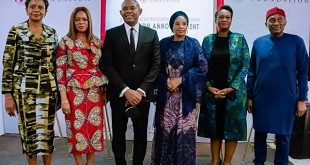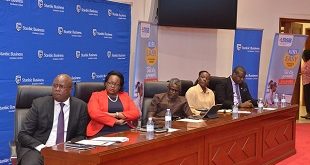
By Andrew M. Mwenda
Does beating, jailing and killing of opposition supporters improve Museveni’s electoral fortunes?
There is one thing on which President Yoweri Museveni and his opponents agree: that employing violence against them gives the president an advantage. Museveni and his handlers use violence perhaps in the sincere belief that it weakens his opponents. The president’s opponents always complain that violence meted out against them is the reason they lose elections. Both sides are wrong and here is the statistical proof.
In 1996, Uganda had 8.5 million registered voters of whom 6.2 million (73%) voted. It was a largely peaceful election although Museveni used some minor violence against his main opponent, Paul Semogerere, breaking down his rallies in Kamwenge and Rukungiri. The president got 4.46 million votes (74.3%) against Semogerere’s 1.4 million (23.6%). This result was at variance with the only opinion poll of that year done by Monitor newspaper which gave Museveni 67% against Semogerere’s 28%. I have a suspicion that this variance is actually a “theft margin.”
Then in 2001, Kizza Besigye challenged Museveni. There was a lot of violence against Besigye supporters (and a few deaths) but not against Besigye himself. Total registered voters were 10.8 million of whom 7.5 million (69%) voted. Museveni got 5 million votes (69.4%) against Besigye’s 2 million (27.3). This means Museveni grew his absolute vote by 500,000 (11%) while Besigye grew the opposition tally by 600,000 votes (42%). And here I am assuming there was no ballot stuffing, which in 2001 was quite rampant.
I did investigations with Daniel Kalinaki and found that Museveni’s team stole up to 750,000 votes. We cut them off Museveni and gave them to Besigye. So the president’s tally fell to 4.25 million (56% of the votes) while Besigye’s grew to 2.75 million (37%). Away from partisan rancour that colours any serious discussion of Uganda’s politics, this figure is just about right. It is also consistent with the last opinion poll done by Daily Monitor just before polling day, which gave Museveni 54% and Besigye 39%.
The most violent presidential election in Uganda was in 2006. The state arrested Besigye and charged him with rape and treason. When they felt this was not enough, the state took him to the military court martial and charged him with terrorism. These actions sparked off the worst protests in Uganda’s history and newspapers began referring to Kampala as Baghdad, after the Iraqi capital that was at the time a war zone. Besigye was nominated in jail where he spent two thirds of the campaign time. The state invaded courts and ruthlessly cracked down on protesters. Literally Museveni ran alone. The state unleashed such unprecedented terror and violence against Besigye supporters that the death toll was upwards to 23. Let us look at the election results of that year to ascertain how much this violence helped Museveni. Total registered voters were 10.4 million of whom 7.2 million (68.4%) cast their ballot. Museveni got 4 million votes (59%). In fact, his absolute vote in 2006 was not only less than what he got in 2001 (5 million) but also less than what he had gotten in 1996 (4.46 million). So he fell by one million votes (20% of his previous tally) in spite of (and I think also because of) use of violence against his opponents. There were only 600,000 votes that stood between Museveni and a second round.
Meanwhile, Besigye got 2.6 million votes (up from 2 million in 2001) i.e. grew by 600,000 votes (30%). And this assumes there was no rigging. In fact we had tallied 3.6 million votes at KFM before then coordinator of intelligence services, David Tinyefuza (now Sejusa), came and shut us down. By this time Museveni had 49% against Besigye’s 43%. Every statistician will tell you that at best Museveni would have climbed to 51%, at worst down 47%. Besigye would have at best climbed to 45% and at worst fallen to 41%. His claims to have won the election are, therefore, wrong. But there was a real chance that Besigye could have forced a second round.
Now we come to 2011, which was the most peaceful election where the state allowed Museveni’s opponents to campaign freely. Total registered voters were 14 million of whom 8.3 million (59%) voted. Museveni’s absolute vote grew from 4 million in 2006 to 5.4 million i.e. by 1.4 million (35%). His share of the total vote was 68.4%. On the other hand, Besigye fell from 2.6 million to 2 million votes, losing 600,000 voters (35%). His share of the vote was 26%. The last opinion poll by Daily Monitor had given Museveni 70%. This was the first election where Museveni performed less than what an opinion poll had predicted.
Besigye claims Museveni stole this vote too. But there were glaring holes in Besigye’s claims away from opinion polls. In 2006, Besigye walloped Museveni in northern Uganda by a ratio of 80:12. In 2011, Museveni won the region. How come Museveni was unable to beat his opponents in the north until 2011? Of course there are many factors that influenced each of these elections, violence being one. Therefore, we need to avoid misconstruing correlation to be causality. It is possible Museveni uses violence when he is (or feels) weak – so it gives him an edge. May be he was genuinely weak in 2001 and 2006 and only violence saved his presidency. He could have felt very strong in 2011 and hence no need for violence.
But it is highly possible that violence undermines Museveni’s cause. For all his many faults, Museveni has presided over the growth of a large and educated middleclass in Uganda. If we use the World Bank estimates that 30% of our people belong to this class, we can see why Museveni is a victim (even though he is equally the architect) of election violence. Enlightened Ugandans are revolted by state violence and intimidation regardless of their political affiliation. Among these 30% Ugandans are many people who are Museveni supporters and opponents. But there are also many people who are independent and undecided. The effect of violence is always to discourage Museveni’s enlightened supporters from voting. It also encourages Museveni opponents in this social group to actually turn out and vote. But most important, many undecided independents in the middle class get revolted by state violence and turn out to vote against Museveni. Museveni performed well in 2011 because by not acting violently, he forced his opponents to campaign on issues, where they are weak. He made them lose their most important asset, emotional support resulting from the sympathy they win when they are beaten. Sad Museveni and his handlers have not learnt this lesson.
amwenda@independent.co.ug
 The Independent Uganda: You get the Truth we Pay the Price
The Independent Uganda: You get the Truth we Pay the Price


